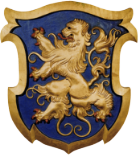Advice and help for addicts
Inhalte aus AMT24
The development of dependency is often the result of a long process which can take place in many small stages. Behaviour, life experience, living habits and personality change – often unnoticed at first.
What is addiction?
The World Health Organisation has replaced the term addiction with dependency and has defined it as:
“A group of behavioural, cognitive and physical phenomena which develop after repeated substance use. Typically, there is a strong desire to take the substance, there are difficulties controlling consumption and there is persistent substance use despite harmful consequences. Substance use takes precedence over other activities and commitments.“
In addition to substance-related dependency on legal (e.g. alcohol) and illegal addictive substances (e.g. cannabis), non-substance-related diseases which are similar to addiction are often regarded as being addictive diseases. These e.g. include various problems such as eating disorders, pathological gambling and internet/media dependency.There are many advice and treatment options to ensure that affected individuals and their relatives receive help.
What is assistance for addicts?
A wide range of support is available to addicts, those at risk of addiction and their relatives.
This includes
- advice,
- treatment and
- aftercare measures
which are significantly increased by self-help provision.
Other contact points apart from addiction advice and treatment centres are addiction-specific psychiatric establishments as well as GPs and psychiatrists.
What are addiction advice and treatment centres?
Addiction advice and treatment centres are open to everyone who has questions about addiction and dependency and particularly those affected and their relatives.
Attendance at advisory sessions is voluntary and free of charge. Employees in advice centres are bound by an obligation of confidentiality in accordance with § 203 of the Strafgesetzbuch (StGB) (‘German Penal Code‘). Consequently, they must treat all information as confidential. In the event of the known consumption of illegal drugs, they also have the right to refuse to give testimony to the prosecuting authorities in accordance with § 53 of the Strafprozessordnung (StPO) (‘Criminal Procedural Code‘).
The services provided by the addiction advice and treatment centres include individual and group discussions and, in some cases, also online advice and outpatient rehabilitation.
Employees are not only concerned with the passing on of factual information, but are particularly concerned with the initiation of short-, medium- and long-term processes of help. Where necessary, the advice centres act as a place of referral with regard to other services which provide help with addiction.
What are self-help groups?
A self-help group is a community of people who have a common or a similar problem with addiction either as an addict or as a relative and who meet together regularly in order to cope and deal with this.
Experiences, information and emotions can be shared in the community by talking about them. There is also the possibility of pursuing leisure activities together. Attendance of the groups is free of charge and is not subject to supervision.
Freigabevermerk
Sächsisches Staatsministerium für Soziales und Verbraucherschutz; Quelle: Health Guide for Migrants in the Free State of Saxony 2014-01-20
